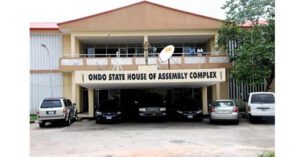
Nigerian rail traffic suffers 25.29% decline in Q2 2022
Passenger traffic on the Nigerian rail system has suffered a 25.29 percent decline, according to the rail transportation statistics released by the National Bureau of Statistics, NBS.
Newsmen learnt in the second quarter of 2022 that passengers declined by 25.29%, standing at 422,393. Comparatively, in the second quarter of 2021, the number of passengers who opted for the rail system stood at 565,385.
Similarly, the reduction in the traffic of 953,099 passengers from Q1 2022 calls for a growing cause for concern.
No doubt, this reality is not unconnected to the raging insecurity concerns, reduction in train trips and technical difficulties with the train have occasioned the dip in the second quarter.
Nigeria’s train sector has served as an alternative for travellers who cannot ply the road or travel by air.
Earlier in March, media outlets had reported an attack on the Abuja-Kaduna railway service. It was gathered that bandits detonated a bomb on the track of the Abuja-Kaduna train and successfully immobilized it at a point between Katari and Rijana. It was gathered that the attackers surrounded the train, shooting sporadically, which resulted in the death of many passengers, such as the Secretary-General of the Trade Union Congress (TUC) of Nigeria, Barrister Musa-Lawal Ozigi; a former Deputy Governor of Zamfara State, Malam Ibrahim Wakkala; and it left many injured.
The terrorists also kidnapped 44 passengers based on statements issued by the Nigerian Railway Corporation in April and the Secretary to the Chief of Defense Staff Action Committee (CDSAC), Prof. Usman Yusuf, in October.
Following the increased security threats and pressure from families of victims of the March 28 attack on the Abuja-Kaduna train, NRC suspended the Abuja-Kaduna train service indefinitely, one of the most active rail services in the country in terms of revenue, passengers and coaches.
Minister of Transportation Mu’azu Jaji Sambo, when asked about the resumption date of the Abuja-Kaduna train service, had said, “If I give a timeline, I’ll be lying to you. It will be insensitive to restart the service if some families weep day and night over their family members still in the bush.”
The minister said the government is looking at the best options in terms of surveillance, including concessioning it in a public-private partnership (PPP) arrangement.
It is anticipated that with the release of more kidnapped victims, increased security architecture and the approval of a contract for the Nigerian Railway Corporation (NRC) worth about N1.49 billion for the repair of cranes, the Abuja-Kaduna rail service may resume operations soon.
Also, technical difficulties regarding the movement of the train have affected the traffic of passengers amongst some passengers in the South West. Recall that earlier in March, a train conveying passengers from Lagos to Ibadan stopped midway due to insufficient diesel, leaving many passengers stranded for hours until the situation was resolved.
The hike in diesel price forced the Nigeria Railway Corporation, NRC, to reduce the number of trips on the Lagos-Ibadan Train Service by about 66.67 percent.
In a chat with the media on the impact of the hike in diesel prices, the Managing Director of NRC, Fidet Okhiria, said, “We have made some recommendations. But even with the recommendations we made, the new price of diesel has overshot our workings as contained in the recommendations. However, we don’t want to price ourselves out of the market too, because the price of petrol is not increasing as such, rather the increase is little when compared to diesel price. And you know we are competing with transporters on the roads.
“We are now doing two return trips as against six, which by now should have gone to 10. So we run just two trips now due to the diesel problem.”



